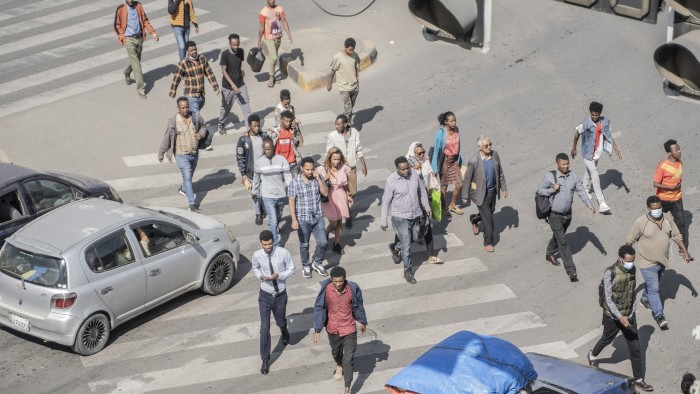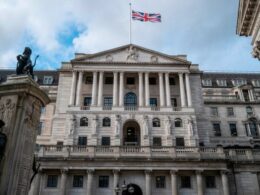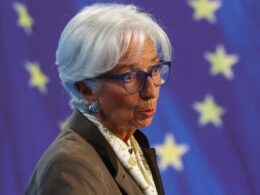Stay informed with free updates
Simply sign up to the Global Economy myFT Digest — delivered directly to your inbox.
The author is an FT contributing editor and writes the Chartbook newsletter
As much of the world obsesses over artificial intelligence and US President Donald Trump’s latest disruption, another historic megatrend is creeping up on us. Next year, if UN predictions are to be believed, the number of working-age people in sub-Saharan Africa will overtake that in the developed world.
The demographic balance of the world economy is shifting. And yet it will barely trouble the headlines because Africa’s economies are so poor. What they lack are well-functioning institutions, capital and technology. According to World Bank estimates, the capital per worker in low-income countries — predominantly in Africa — is just $5,000 a head, one-fifth that in their middle-income counterparts.
To realise the continent’s potential, the African Development Bank calls for a historic investment push of $400bn a year. If that happened, it would be an integration process on the scale of that which brought China into the world economy in the 1990s and 2000s. It would be a news story to dwarf any of our other obsessions. Instead, when we read about Africa it is horror stories from Sudan and the Democratic Republic of Congo, reinforcing the image of a continent in crisis.
You might say plus ça change. Through to the 1980s, it was taken for granted that the majority of the world’s population would always be poor. China’s growth and then that of India gave reason to believe that this need not be so, that ending poverty was within reach. In 2015, this new hope underwrote the UN’s sustainable development goals. To realise their bold ambitions, the development community looked to the financing mechanism of public-private partnerships, also known as blended finance. De-risking and leverage would allow relatively modest amounts of public money to mobilise a huge surge of private investment. Billions would be converted into trillions.
“It was a bold idea, boosted by a snappy slogan,” according to World Bank chief economist Indermit Gill. But, as he makes clear in his preface to the 2024 Debt Report, it has not worked. The idea that trillions in private funding were waiting to be unleashed has “proved to be a fantasy”. Rather than flowing in, private funds have flowed out — to the tune of $141bn — since 2022. The World Bank and the IMF have been forced to fill the gap. This is not what they are designed to do. It isn’t sustainable and it cannot deliver the scale of financing that is needed.
Given the structure of the Bretton Woods institutions inherited from their founding moment in 1944, the US has a decisive voice in shaping their future. To its credit, the Biden administration recognised that more funding was needed. But it was as wedded to blended-finance mechanisms as all its predecessors and Republican opposition in Congress hobbled its efforts to creatively expand the balance sheets of the World Bank and IMF.
Now the GOP holds power in both Congress and the White House. Amid a flurry of disruptive executive orders since Trump took office, the future of international economic institutions is up for grabs. The best hope seems to be that Trump 2.0 will moderate with time. But, as far as global development is concerned, that will not do. Preserving the status quo is not good enough. The status quo isn’t working.
As Gill insists, the poorest countries are suffering not from a liquidity but a solvency crisis. They urgently need debt relief. Sovereign borrowers need the kind of bankruptcy protection taken for granted by private debtors. Private creditors who made high-risk, high-return loans to poor countries must bear their share of the losses. We need a new grand bargain that is fairer, more sustainable and delivers more funding.
It is a tall order and it would be far-fetched to expect much from the Trump administration. Europe is preoccupied with its own problems. China is embattled. Perhaps leadership can come from within Africa itself. In an important development, South Africa — as the chair of the G20 — has taken up the debt-relief issue. Nigeria may add its weight to the scales.
The stakes could hardly be higher. For the global north it may seem that the future of globalisation will be decided by trade wars. These will make already rich countries marginally less prosperous. For Africa, the questions are far more existential.
So far, the mechanisms of globalisation have left much of the continent on the outside looking in. Whether that can be changed will go a long way to deciding the future of the 2.5bn people — a quarter of the world’s population — who will be living in Africa by 2050.
Source link









